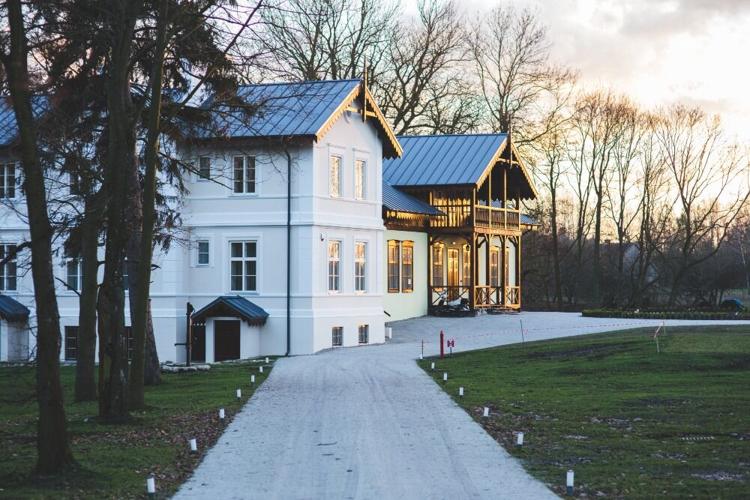As real estate markets across the country adjust to higher interest rates and slowing sales, certain mid-sized cities are emerging as attractive alternatives for buyers and investors. One of those is Little Rock, Arkansas — a city that has quietly built a reputation as both affordable and full of growth potential. With its balance of urban amenities, lower cost of living, and increasing demand for housing, more people are asking whether now is the right time to buy or invest in the state’s capital.
In fact, investors and families alike are increasingly exploring opportunities to sell through quicker, more flexible options, including solutions such as cash for houses in Little Rock Arkansas. This approach not only helps homeowners secure faster closings but also aligns with the growing demand from buyers seeking ready-to-purchase properties in competitive markets.
Affordability in a Shifting Market
Housing affordability has become one of the most talked-about issues in real estate. According to the National Association of Realtors (NAR), the median home price in the U.S. reached nearly $416,000 in 2024, pricing many buyers out of major coastal markets. By contrast, the median home price in Little Rock was around $220,000, according to Zillow — nearly half the national figure.

This affordability gap has made Little Rock attractive not just to locals, but also to out-of-state buyers looking for primary residences, retirement homes, or rental properties. For families, young professionals, and retirees, the city offers more houses for the money, something that’s hard to find in today’s high-interest environment.
Migration Trends Favor Smaller Cities
The pandemic accelerated a trend already in motion: migration from high-cost metropolitan areas to more affordable mid-sized cities. U.S. Census Bureau data shows that states like Arkansas gained new residents from California, Illinois, and other higher-cost states over the past few years.
Little Rock’s metro population has grown steadily, up nearly 5% over the past decade. While that may seem modest compared to booming Sunbelt cities, the growth has been consistent and sustainable — fueling steady housing demand without pricing out locals.
More remote workers and investors are seeing Arkansas not as a flyover state, but as a place where their dollars stretch further. That demand has fueled both the traditional housing market and alternative real estate transactions.
Why Cash Buyers Are Attracted to Little Rock
One trend gaining ground in the local market is the rise of cash transactions. Rising mortgage rates — which hit 7.3% in September 2024, the highest in more than two decades — have slowed traditional, finance-backed home sales. In response, cash buyers are stepping in.
For sellers, the appeal is clear: fewer delays, no bank approvals, and faster closings. For buyers, particularly investors, it’s a way to compete in a market where affordability creates competition.

Real estate analysts note that in many U.S. cities, all-cash deals now make up nearly 30% of transactions — and in more affordable markets like Little Rock, that share is even higher. Local investors and national buyers alike are recognizing the city’s strong fundamentals and are capitalizing on opportunities while mortgage-dependent buyers wait on the sidelines.
Investment Opportunities on the Rise
Little Rock’s rental market has also contributed to the surge in buyer interest. With more than 35% of households renting in the metro area, according to Census data, investors see steady income opportunities. Lower purchase prices combined with consistent rental demand make the math attractive compared to larger, more volatile markets.
Additionally, development projects in downtown Little Rock and surrounding suburbs are creating long-term value. Buyers looking at the city as both a place to live and invest see potential appreciation in addition to immediate affordability.
For investors, the balance of stable rents, low purchase costs, and steady demand creates an equation that is hard to ignore in today’s high-priced environment.
Selling Without Renovations: A Growing Trend
While buyers are flocking to the city, sellers are also adapting to the realities of today’s market. Rising labor costs and supply chain disruptions have made home renovations more expensive, leaving some homeowners reluctant to invest in repairs before selling.
That’s why selling “as-is” has gained traction. Instead of pouring money into upgrades, many sellers are choosing to list their properties in current condition. For those exploring this route, reviewing a reliable guide for selling a house as-is can provide helpful insights — from pricing strategies to understanding buyer expectations.
In markets like Little Rock, where cash buyers are common, as-is sales often make perfect sense. Investors looking for rental properties or fix-and-flip opportunities are more willing to take on homes that need updates, and sellers benefit from quicker, less complicated closings.
Little Rock’s Lifestyle Advantage
Beyond affordability and investment math, Little Rock also appeals to buyers for its quality of life. The city offers cultural institutions like the Arkansas Museum of Fine Arts, access to outdoor recreation along the Arkansas River, and a strong healthcare sector anchored by UAMS Medical Center.
The cost of living is another draw. According to Numbeo, overall living costs in Little Rock are about 20% lower than the national average, meaning buyers and families not only save on housing but also on daily expenses like groceries, transportation, and healthcare.
For many relocating buyers, these factors combine to create a balanced lifestyle at a fraction of the cost of larger cities. That lifestyle appeal continues to strengthen the city’s housing market.
While major housing markets on the coasts continue to struggle with affordability and slowdowns, Little Rock, Arkansas ,is drawing increased attention. Its lower home prices, rising demand, and growing interest from both local and out-of-state buyers make it a market worth watching.
For sellers, the trend means more opportunities to attract competitive offers — whether through traditional listings or faster options like cash buyers. For buyers and investors, the city represents a chance to secure properties with strong long-term value.
As the housing market continues to evolve in 2025, Little Rock shows that smaller cities can offer big opportunities. For homeowners, it may mean selling an as-is property without stress. For investors, it could be about securing the next rental or flip. Either way, this Southern capital has proven that even in a high-interest, uncertain market, smart real estate opportunities remain.








(0) comments
We welcome your comments
Log In
Post a comment as Guest
Keep it Clean. Please avoid obscene, vulgar, lewd, racist or sexually-oriented language.
PLEASE TURN OFF YOUR CAPS LOCK.
Don't Threaten. Threats of harming another person will not be tolerated.
Be Truthful. Don't knowingly lie about anyone or anything.
Be Nice. No racism, sexism or any sort of -ism that is degrading to another person.
Be Proactive. Use the 'Report' link on each comment to let us know of abusive posts.
Share with Us. We'd love to hear eyewitness accounts, the history behind an article.